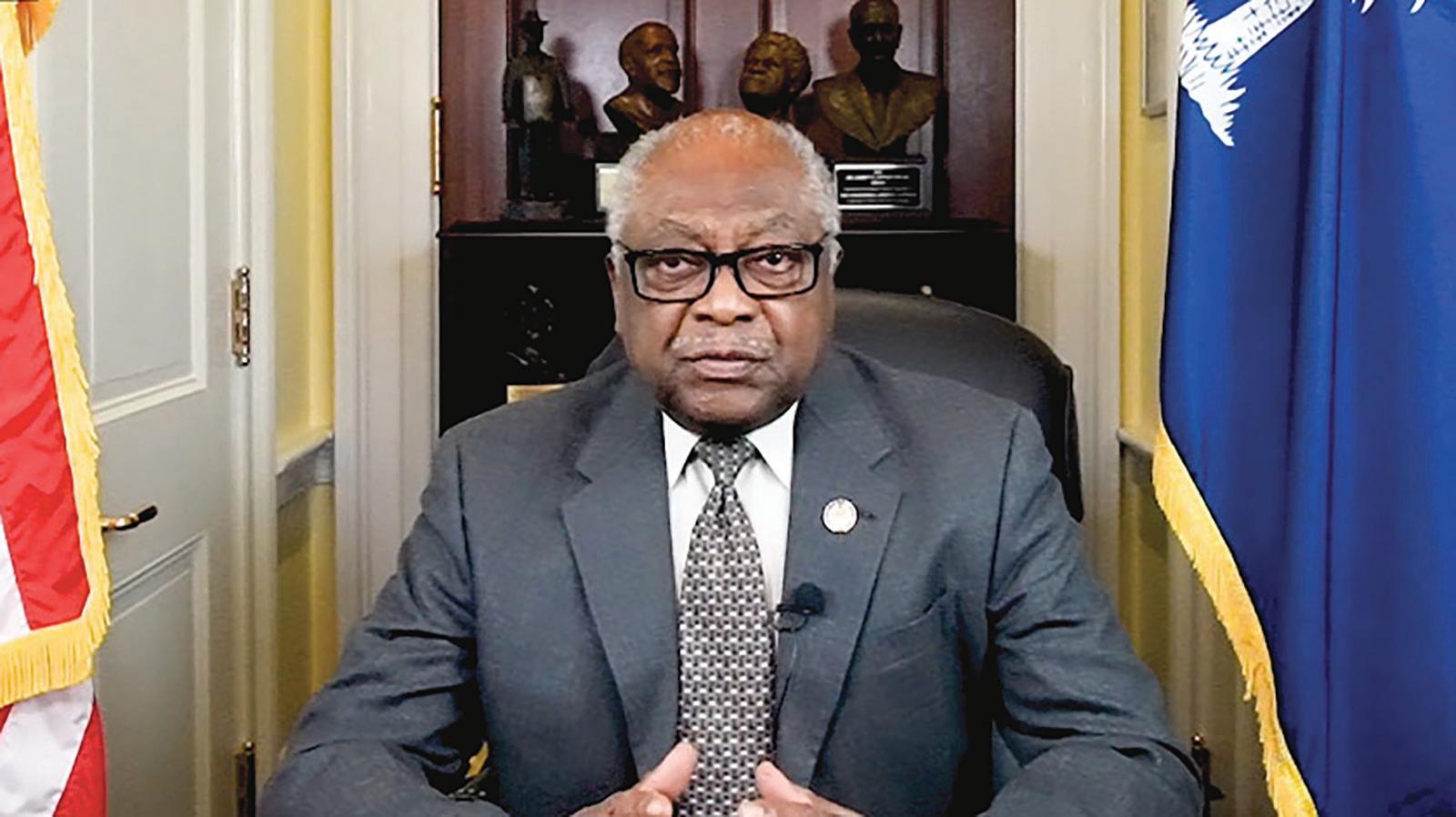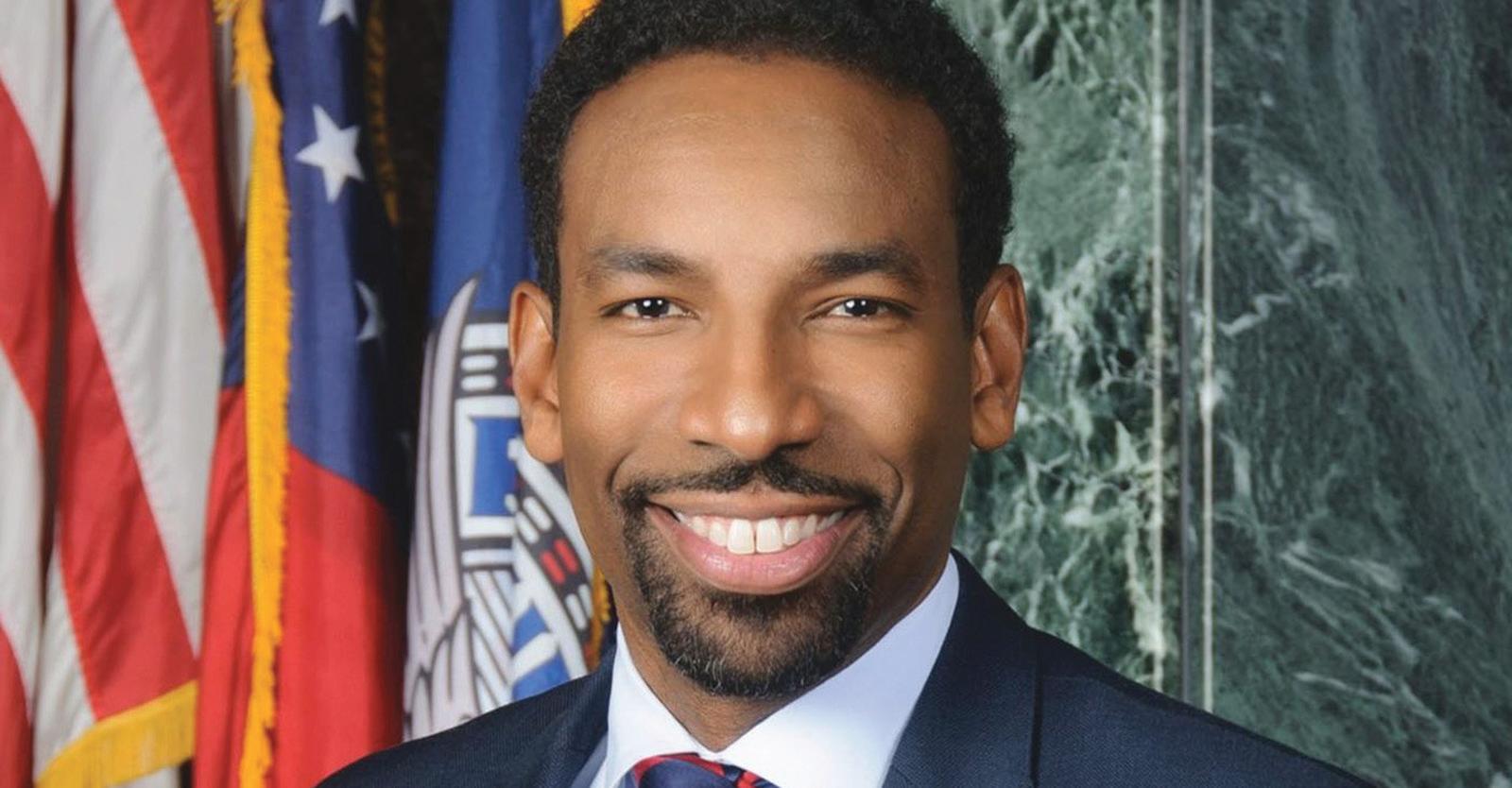
4 minute read
Addressing the Issues Around Public Safety and Policing
By Congressman James E. Clyburn
Following the murders of Breonna Taylor and George Floyd in 2020 at the hands of law enforcement—two in a long line of avoidable tragedies—Democrats reaffirmed our commitment to ensuring that law enforcement truly protect the communities they serve. House Democrats passed the George Floyd Justice in Policing Act to prevent police misconduct by improving law enforcement practices and enhancing accountability. Regrettably, the bill stalled in the Senate due to Republican opposition. Since taking office in 2021, President Joe Biden has restricted the transfer of military equipment to police departments and directed federal law enforcement agencies to end the use of chokeholds and no-knock warrants.
Advertisement
Now a renewed call for action has emerged as the country mourns the violent death of Tyre Nichols, yet another unarmed Black citizen murdered by police. It has become undeniable that the culture of policing must improve. To reform this violent culture, we must enact public safety reforms that address the lack of accountability and transparency in policing while increasing the standards for those who wear the badge.
Our communities deserve meaningful change in how they are policed, and increased accountability will further that goal. It is unconscionable that a police officer can be fired from their local department for misconduct only to find employment in another department without consequence. Lawyers, doctors, public school teachers, and nearly all other professionals face accountability. Police officers have a sacred responsibility to protect the public— they should certainly not be immune from it. Increased accountability goes hand in hand with increased transparency. Police department data, information, and policies should be made available to the communities they serve. There are more than 18,000 local police departments in the United States. However, there is no national requirement for collecting and sharing use-offorce data. Nor is there a nationwide database or registry that tracks problematic officers, preventing those who have been fired from moving on to another jurisdiction without accountability. The lack of transparency erodes public trust and allows dangerous actors to patrol our streets.
Increasing the professional standards for those who serve involves setting national practices and instituting mandatory trainings to ensure officers have the communication and de-escalation skills they need to better connect with their communities and prevent the deadly escalation of force. Training officers in these areas would improve police conduct and help officers better serve their communities.
In his January 7, 2023, State of the Union Address, President Biden urged us to “rise to this moment. We can’t turn away. Let’s do what we know in our hearts we need to do. Let’s come together to finish the job on police reform.”
It is time for us to enact the reforms necessary to save lives.
I call on our colleagues across the aisle to join in this critical effort.
To those who have lost loved ones to police violence, know this: just because you’re not in the headlines doesn’t mean you’re absent from our hearts and minds. South Carolina remembers Walter Scott, who was shot in the back and killed by a North Charleston police officer the morning of April 4, 2015. His brother, Anthony Scott, was my guest for this year’s State of the Union Address.
Together, we heard President Biden’s call for action, and I can assure you that I will do all within my power to answer that call.
2nd Chronicles 15:7 urges, “be strong and do not let your hands be weak, for your work shall be rewarded.” The road to achieving police reform may be long, but we must not tire. Instead, we must press on in honor of those we have lost and to prevent more Black men and women from falling victim to the same fate.
President Biden is Investing in America’s Underserved Communities
end the tale of two cities in Atlanta. I promised to fight for an economy that grew in a balanced way, so that workers could get trained for family-sustaining jobs, small businesses could participate in our city’s growth and all of Atlanta could rise together. More plainly, I wanted to ensure that Atlantans from all backgrounds have a shot at fully participating in Atlanta’s economy.
Atlanta is one of the most diverse cities in America, so the economic mobility of all Atlantans is of extraordinary importance to me. It matters to President Joe Biden, too.
In fact, President Biden and Vice President Kamala Harris have proven this time and again by delivering federal resources. Thanks to the historic Infrastructure Investment and Jobs Act, Inflation Reduction Act, American Rescue Plan, and executive orders signed by the president, historic investments are being made in cities like Atlanta – and everybody has a shot at participating and benefiting from these investments.
This month, Vice President Harris joined me in Atlanta to celebrate federal dollars coming to electrify Atlanta-area school buses. We’re moving away from the hazardous fumes of diesel school buses, which are disproportionately used in underserved communities, toward cleaner energy that’s better for the environment and better for our children’s health. And with these investments, we’re ensuring Atlantans in all zip codes have access to apprenticeships and good-paying job opportunities.
Auburn for all but had a laser focus on economic empowerment for everyone
When I ran for mayor, I made a commitment to
These investments are just the beginning when it comes to ensuring all of Atlanta participates in our economy. Within days of taking office, President Biden signed an executive order which requires the federal government to live up to the Justice 40 Initiative. Justice 40 is an effort to ensure that at least 40 percent of certain federal investments go to communities that have faced a disproportionate burden of environmental harms and pollution. That means more improvements and more jobs in our communities.

Plus, thanks to the Biden-Harris Administration working alongside Sen. Ossoff, Sen. Warnock and Rep. Williams, Atlanta will receive $30 million to improve safety along Pryor Street and Center Avenue through the Safe Streets and Roads for All Program. This program will allow the city to hire workers from our communities to build protected bike lanes and pedestrian facilities, making the area safer and more accessible while connecting the Southside and the Southside Beltline. This is in addition to $40 million delivered to upgrade Hartsfield-Jackson Atlanta International Airport and millions of American Rescue Plan funds the City has already put to work on pre-arrest diversion services, combatting homelessness, job training and so much more. We have a lot more work to do before every family in Atlanta has the same access to economic mobility, but change is happening right now – and a lot of that progress is due in large part to the priorities of the Biden-Harris Administration.
Here’s the bottom line: as mayor, my job is to show up and deliver. President Biden and Vice President Harris make that job easier – they are providing the resources to create jobs, contract with women and minority-owned firms, and make real improvements in our communities. In the cradle of the civil rights movement, we’re benefitting from allies in the White House who are laser focused on economic empowerment.










